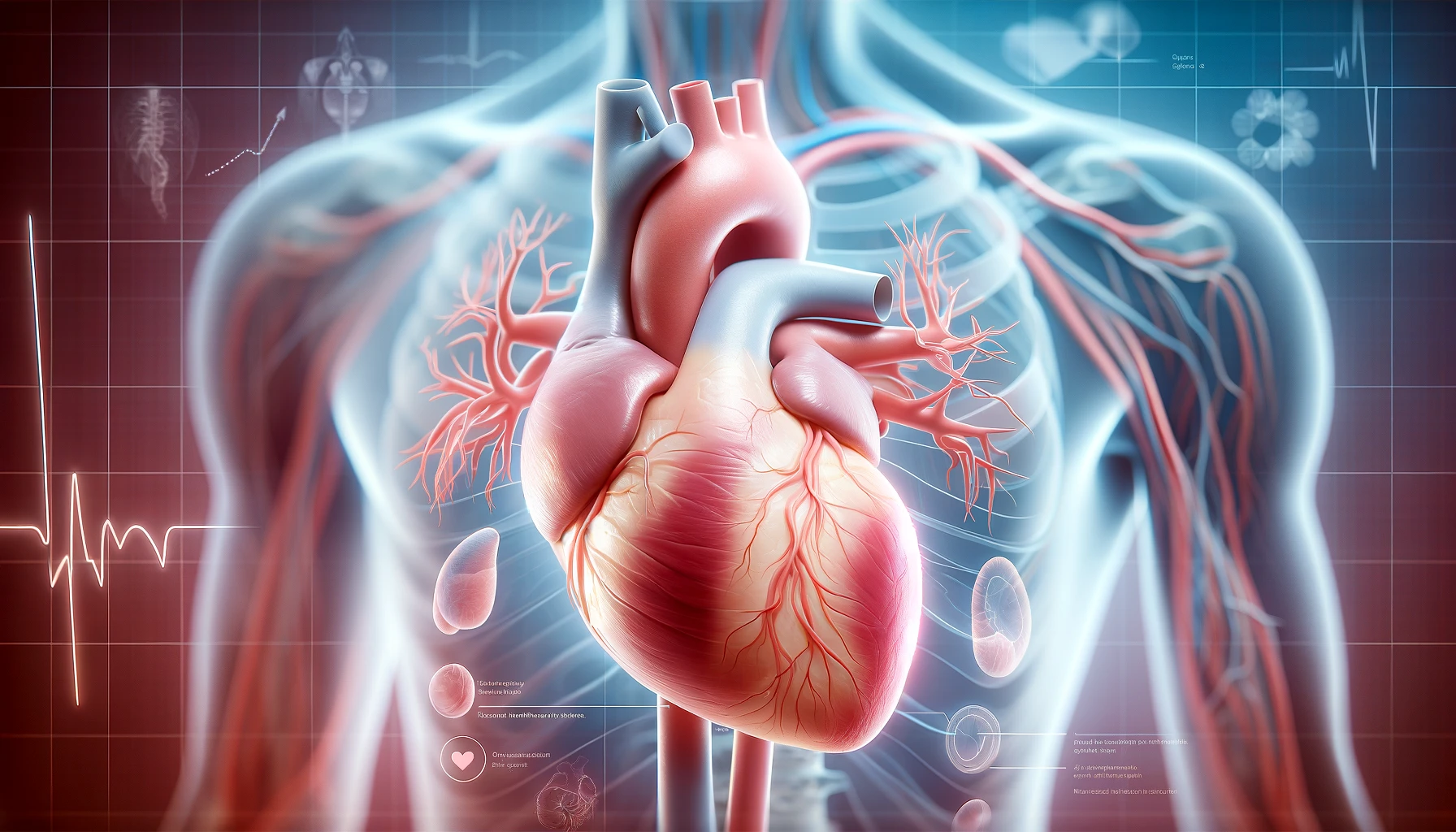Heart health is a cornerstone of overall well-being, yet many people underestimate its importance until it’s too late. Contrary to popular belief, heart issues are not exclusive to the elderly; they can affect anyone, regardless of age. Recognizing the early warning signs of poor heart health is crucial for timely intervention and prevention of more severe conditions.
Ignoring these signs can lead to devastating consequences, including heart attacks and strokes. By understanding and paying attention to these early indicators, you can take proactive steps to maintain your cardiovascular wellness and ensure a healthier, longer life.
Physical warning signs
Chest pain or discomfort
One of the most alarming and common warning signs of a weak heart is chest pain or discomfort. This sensation can manifest in various ways, from a sharp, stabbing pain to a dull ache or pressure. Often described as feeling like an elephant sitting on your chest, this discomfort should never be ignored. While chest pain can be caused by other conditions such as acid reflux or muscle strain, it is crucial to differentiate these from cardiac-related pain. If the pain is accompanied by other symptoms like shortness of breath, sweating, or nausea, it is more likely to be heart-related and warrants immediate medical attention. Understanding the nuances of chest pain can be a lifesaver, as timely intervention can prevent severe outcomes like heart attacks.
Shortness of breath
Another significant indicator of poor heart health is shortness of breath. This symptom can occur during physical activity or even at rest, and it often signals that your heart is struggling to pump blood efficiently. Shortness of breath can be caused by various factors, including lung conditions, but when it is related to heart health, it is a red flag that should not be ignored. If you find yourself gasping for air after minimal exertion or experiencing difficulty breathing while lying down, it is essential to consult a healthcare professional. These symptoms could indicate underlying issues such as heart failure or coronary artery disease, both of which require prompt medical intervention. Recognizing and addressing shortness of breath early can significantly improve your cardiovascular wellness and overall quality of life.
Unusual fatigue
Feeling unusually tired or fatigued can also be a warning sign of poor heart health. While it is normal to feel tired after a long day or strenuous activity, persistent fatigue that is not relieved by rest can be a cause for concern. This type of fatigue is often linked to the heart’s inability to pump blood effectively, leading to reduced oxygen supply to the body’s tissues. If you find yourself feeling exhausted after simple tasks like climbing stairs or carrying groceries, it may be time to evaluate your heart health. Unusual fatigue can be an early indicator of conditions such as heart disease or heart failure, and addressing it promptly can lead to significant heart function improvement. By paying attention to your body’s signals and seeking medical advice, you can take proactive steps to maintain a heart-healthy lifestyle and prevent more severe health issues.
Other noticeable symptoms
Swelling in limbs (edema)
Swelling in the limbs, particularly in the legs, ankles, and feet, is a symptom that should not be overlooked. This condition, known as edema, occurs when excess fluid accumulates in the body’s tissues. While edema can result from various causes, including prolonged standing or sitting, it is often a sign of poor heart health. When the heart is unable to pump blood effectively, blood can back up in the veins, leading to fluid leakage into surrounding tissues. This is particularly common in cases of heart failure, where the heart’s diminished capacity to circulate blood results in noticeable swelling. If you observe persistent or worsening swelling in your limbs, it is crucial to seek medical advice. Early detection and treatment can significantly improve your cardiovascular wellness and prevent further complications.
Irregular heartbeats (arrhythmias)
Irregular heartbeats, or arrhythmias, are another critical warning sign of poor heart health. Arrhythmias can manifest in various forms, including tachycardia (rapid heartbeat), bradycardia (slow heartbeat), and atrial fibrillation (irregular heartbeat). These irregularities can disrupt the heart’s ability to pump blood efficiently, leading to a range of symptoms such as dizziness, palpitations, and even fainting. While occasional irregular heartbeats can be harmless, persistent or severe arrhythmias can have serious consequences, including an increased risk of stroke or heart failure. Monitoring your heart rate and seeking medical evaluation for any irregularities is essential for maintaining coronary artery health. By addressing arrhythmias early, you can take steps towards heart disease prevention and ensure a heart-healthy lifestyle.
Persistent coughing or wheezing
Persistent coughing or wheezing can also be indicative of underlying cardiovascular issues. While these symptoms are commonly associated with respiratory conditions, they can also signal heart problems, particularly when accompanied by other signs of poor heart health. When the heart is unable to pump blood effectively, fluid can accumulate in the lungs, leading to a condition known as pulmonary congestion. This can result in a chronic cough or wheezing, which may worsen when lying down. If you experience persistent coughing or wheezing that does not improve with typical treatments, it is essential to consider the possibility of heart-related causes. Consulting a healthcare professional can help identify the root cause and guide you towards appropriate heart disease treatment. By addressing these symptoms early, you can improve your heart function and overall cardiovascular wellness.
Lifestyle-related indicators
High blood pressure
High blood pressure, or hypertension, is a significant lifestyle-related indicator of poor heart health. Often referred to as the “silent killer,” hypertension can go unnoticed for years while causing extensive damage to your cardiovascular system. The risks associated with high blood pressure are numerous, including an increased likelihood of heart attacks, strokes, and kidney disease. Regular blood pressure management is crucial for maintaining cardiovascular wellness. If your blood pressure readings consistently exceed 130/80 mmHg, it is essential to seek medical advice. Early intervention can help you adopt lifestyle changes and, if necessary, medication to control your blood pressure. By keeping hypertension in check, you can significantly reduce your risk of severe heart-related complications and promote a heart-healthy lifestyle.
Diet and weight concerns
Your diet and weight play a pivotal role in your heart health. A poor diet high in saturated fats, trans fats, and cholesterol can lead to the buildup of plaque in your arteries, increasing the risk of heart disease. Obesity further exacerbates this risk by putting additional strain on your heart and contributing to conditions like hypertension and diabetes. To improve your heart health, it is essential to adopt a healthy heart diet rich in fruits, vegetables, whole grains, and lean proteins. Foods high in omega-3 fatty acids, such as salmon and flaxseeds, can also support coronary artery health. Conversely, it is crucial to avoid or limit foods high in sodium, sugar, and unhealthy fats. Maintaining a healthy weight through a balanced diet and regular exercise can significantly reduce your cardiac risk factors and enhance your overall cardiovascular wellness.
Exercise intolerance
Exercise intolerance is another critical lifestyle-related indicator of poor heart health. If you find yourself struggling to complete physical activities that were once manageable, it may be a sign that your cardiovascular fitness is declining. Indicators of poor cardiovascular fitness include shortness of breath, excessive fatigue, and chest discomfort during exercise. These symptoms suggest that your heart is not pumping blood efficiently, which can be a precursor to more severe conditions like heart disease. Engaging in regular cardiac fitness exercises is essential for maintaining heart function improvement and overall health. However, it is crucial to take precautions when exercising, especially if you have existing heart conditions. Consulting with a healthcare professional can provide you with personalized cardiac care tips and an exercise regimen tailored to your needs. By addressing exercise intolerance early, you can take proactive steps to enhance your cardiovascular wellness and lead a more active, heart-healthy lifestyle.
Conclusion
Early detection and medical consultation are paramount when it comes to maintaining heart health. Recognizing the warning signs of poor heart health, such as chest pain, shortness of breath, unusual fatigue, swelling in the limbs, irregular heartbeats, and persistent coughing, can make a significant difference in outcomes. These symptoms are often the body’s way of signaling that something is wrong, and ignoring them can lead to severe consequences, including heart attacks and strokes. Seeking medical advice at the first sign of trouble allows for timely intervention, which can prevent the progression of heart disease and improve your overall cardiovascular wellness.
Regular check-ups, blood pressure management, and heart rate monitoring are essential components of a proactive approach to heart health. By staying vigilant and consulting healthcare professionals, you can take control of your heart health and ensure a longer, healthier life. Adopting healthier lifestyle habits is crucial for heart disease prevention and overall well-being. A heart-healthy lifestyle involves a combination of a balanced diet, regular exercise, and stress management. Incorporating a healthy heart diet rich in fruits, vegetables, whole grains, and lean proteins can significantly reduce your risk of heart disease.
Regular physical activity, including cardiac fitness exercises, helps improve heart function and maintain a healthy weight. Additionally, managing stress through techniques such as meditation, yoga, or deep breathing exercises can have a positive impact on your heart health. It is also essential to avoid harmful habits such as smoking and excessive alcohol consumption, as these can exacerbate cardiac risk factors.
By making these lifestyle changes, you can take proactive steps towards heart disease prevention and enjoy a higher quality of life. Remember, your heart health is in your hands, and the choices you make today can have a lasting impact on your future.





